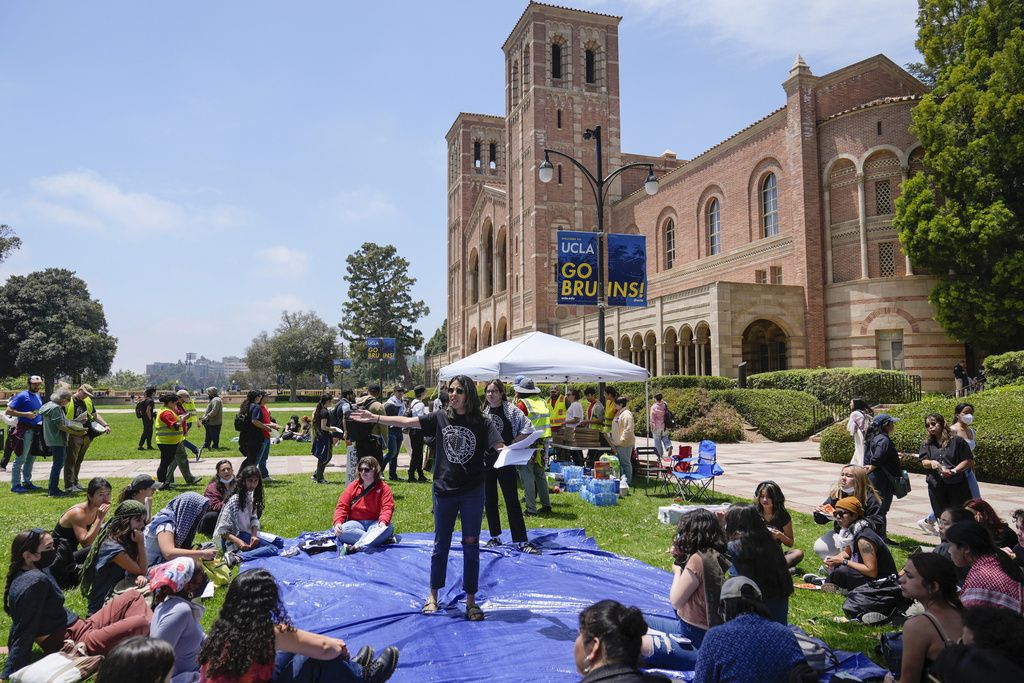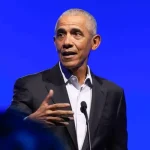

EXCLUSIVE — The University of California, Los Angeles medical school solicited first-year medical students for a paid position writing curriculums for courses in their “Structural Racism and Health Equity” mandatory classes.
In documents obtained through a public records request from the medical advocacy group Do No Harm, the medical school was recruiting “tutors” to “create new curricular content for our SRHE thread—lectures, panels, discussion guides, cases, new electives—as well as audit and analyze existing curricular content for other SRHE threads.” SRHE is the school’s name for its Structural Racism and Health Equity curriculum.
The recruiting letter was seeking first and second year medical students, as well as “Leave of Absence” students.
“Recruiting students to this course to serve as mentors and as developers of curriculum is almost laughable. But in ways it reveals the true nature of these activities. One need not know anything about medical care or how to treat sick patients in order to put together a course on structural racism in healthcare,” Do No Harm Chairman Dr. Stanley Goldfarb told the Washington Examiner. “First-year medical students are seen as appropriate mentors and curricular developers for this course. First-year medical students have never treated a patient and have no concept of the proper approach to patients and to understanding illness, yet they are proposed to be the faculty of this course.”
“The UCLA School of Medicine’s plan to recruit students to be instructors as well as to develop curriculum in training other medical students is a terrible idea,” Goldfarb continued. “Curriculum should be developed by experts. Students that have been out protesting or engaged in other such activities are not experts in anything and should not be developing curricula.”
The SRHE “curricular theme,” which is currently under review by the school after public backlash, emphasizes critical race theory, queer theory, and “anti-racist” lenses, as well as diversity, equity, and inclusion ideology, to frame medical students’ education around “medicine’s reinforcement of health injustices, and how structural determinants of health such as race shape our present healthcare framework,” according to a course guide on the SRHE requirement. The status of the review, which was launched last month, is unclear.
The UCLA medical school has come under fire over the past several months as reports of its SRHE mandatory course load have shown the school attempting to tie in far-left ideology to medical care, including anti-capitalist messaging, social justice activism, and anti-scientific claims attempting to normalize obesity. The scrutiny comes as DEI has come under the microscope and fallen out of favor among many who view the ideology as promoting race and gender characteristics as more important than merit and skill.
In a June 2023 “tutor” recruiting document reviewed by the Washington Examiner, the UCLA medical school was seeking applicants “with a prior demonstrated commitment to organizing for racial justice and intersectional equity issues at [the David Geffen School of Medicine] and in their communities.”
“We are also searching for applicants who are well-versed in identifying and addressing how structural racism and other forces of oppression manifest in medical education, clinical practice, and society, as well as their implications for community health and well-being,” the UCLA medical school wrote in the document.
Answering a “frequently asked question” about why students should be interested in becoming a “tutor,” the recruitment document said it could be used as an “opportunity to take frustrations at missed opportunities and problematic sessions and transform them into action; form of health justice in a community that we are all stakeholders in and accountable to.”
The application required students interested in the $20-per-hour position to write essays displaying their commitment to the ideology behind the requirement, including answering what role race and racism has played in one’s “lived experience and/or career,” as well as “how and why social structures and systems of power come to render some communities more vulnerable to illness and premature death.”
Students were also asked to provide a statement from a peer, faculty member, or community organization “outlining your commitment to and track record of anti-racist work.”
“The course in structural racism at UCLA consists of far-left ideologies utilizing critical race theory as its touchstone,” Goldfarb said. “The concept that society should be divided into oppressed and oppressors can only lead to divisiveness and to worse health outcomes as patients trust in the healthcare system is further eroded.”
One class session created by the SRHE team was “Towards Queer Health Justice: Undoing Heteronormative Patriarchy in Medicine,” which sought to “emphasize the importance of learning from and standing in solidarity with Queer struggle, recognizing the connections between Queer liberation, feminism, bodily autonomy, and racial capitalism, and the fraught history that medicine has had and continues to have in oppressing non-normative bodies, gender [identities], and sexualities,” according to a July 2023 email reviewed by the Washington Examiner, which also wished first-year students a “happy belated Pride.”
The session brought in “queer activists” from the Los Angeles area to talk about “fighting for Queer health justice” and was geared toward objectives to “recognize past and present harms that medicine has inflicted on the Queer community (particularly BIPOC trans and intersex people), and consider practical ways of rectifying those harms (allyship)” and “depathologize gender, sex, and sexuality in support of self-determination, understanding the beauty that variation adds to human experiences, communities, and society at large.”
A 2021 session offering titled “Histories of Resistance: Models of Care in Revolutionary Praxis” featured Cleo Silvers, a former member of the Marxist militant black power organization the Black Panther Party and Puerto Rican street-gang-turned-activist-organization Young Lords Party, to speak about “these groups’ radical reimagining of health and healthcare, and what we can all learn from their experiences and visions in our pursuit of equity and justice today.”
One proposed session, which, according to emails, appears to have been canceled in January without explanation, was a “racial caucusing session” that divided classes into three separate racial groups: white students, non-black people of color students, and black students.
“We want to emphasize that unlike most medical school pedagogies where scientific and clinical expertise is highly valued and hierarchical, racial caucusing works towards a more horizontal, dialogic approach,” the document reviewed by the Washington Examiner stated.
White students would have been told to “critically reflect on our own racial identity, recognizing that whiteness operates in part by obscuring this engagement” and would have been encouraged to “consider the way white supremacy is foundational to and inseparable from other structures of oppression such as colonialism, racial capitalism, cisheteronormativity, and ableism.”
The white students would then need to turn their “self reflection” into “anti-racist actions.”
The nonblack people of color group would be afforded the opportunity to “share space away from the white gaze” while “recognizing that being a POC does not relinquish us from perpetuating anti-Blackness.”
Meanwhile, the black student group would have focused on “unity” to combat the “race-based societal structure.”
CLICK HERE TO READ MORE FROM THE WASHINGTON EXAMINER
“Most importantly, identify ways this collective space can provide opportunities for emotional rest, compassionate support, and healing affirmation of each of our personal experiences,” the description of the proposed session said. “Celebrating the resilience we all demonstrate working in these spaces and loving the beauty that is present in this space.”
The UCLA medical school did not return a request for comment from the Washington Examiner.




